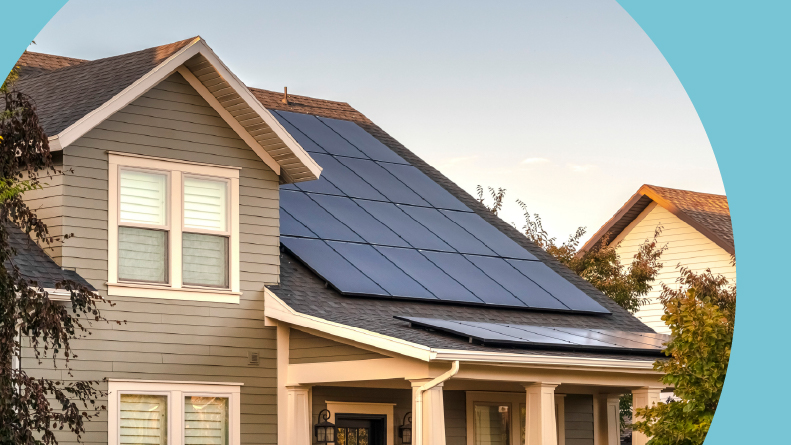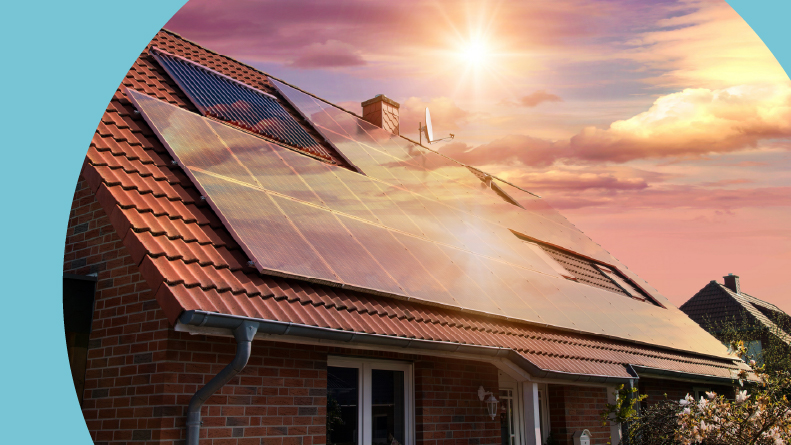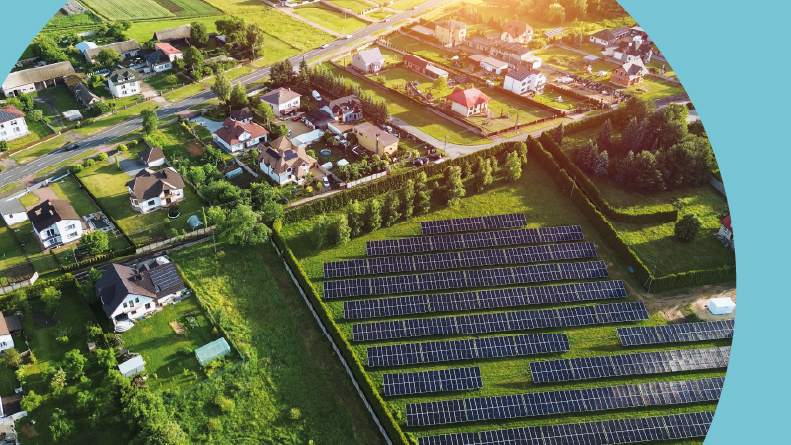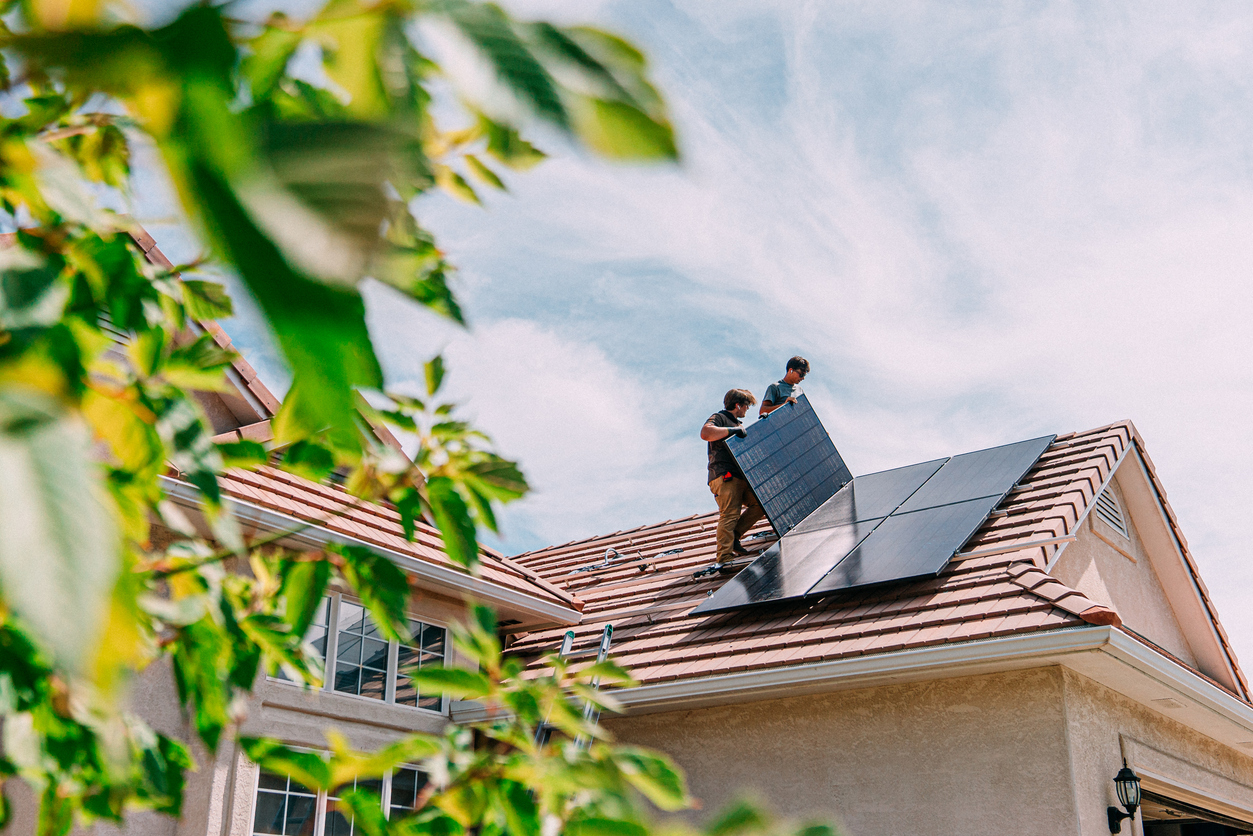Solar power is an increasingly popular home upgrade, especially among retirees looking to save on energy costs and reduce their environmental impact. If you’re planning a move to a 55+ community, you may already have solar panels on your current home or you’re considering making the switch in your next one. But before you do, it’s important to understand how homeowners’ association (HOA) rules might affect your plans. While state laws generally provide guidance on solar access, many still allow HOAs to impose certain reasonable restrictions.
Understanding Solar Power Access Laws

At the time of this writing, 29 states have adopted laws that explicitly restrict how much HOAs can ban the installation of solar panels. Most of these laws still allow HOAs to enact “reasonable restrictions” that don’t have a significant impact on price or performance. The remaining 21 states offer fewer protections to residents, allowing HOAs broader authority.
What Constitutes “Reasonable Restrictions”
While the exact details vary from state to state, most protective state laws establish clear parameters for what can be restricted:
- Cost Limitations: Restrictions cannot increase installation costs by more than a certain threshold
- Efficiency Standards: Requirements cannot reduce energy production by more than 10%
- Aesthetic Guidelines: HOAs can require specific colors, concealed wiring, or uniform appearance
- Safety Compliance: Restrictions to address legitimate safety concerns are allowed
State Protections for 55+ Residents

Laws change rapidly, so understanding the exact protections you desire for solar panels requires you to look at what’s currently on the books in your state. Below is a sampling of the range of laws across states.
Strong Protection States
California: The California Solar Rights Act limits HOA restrictions, with many cities enforcing additional protections.
Florida: Florida Statute 163.04 allows HOAs to determine solar panel placement, but cannot deny permission entirely. Systems must face south or within 45 degrees of due south.
Texas: Property Code 202.010 prohibits HOAs from restricting solar installations for anything other than public safety reasons.
Illinois: The Homeowners’ Energy Policy Statement Act explicitly prohibits HOAs from banning solar installations.
Moderate Protection States
Arizona: Senate Bill 1254 allows reasonable placement rules that don’t prevent installation or affect efficiency.
Colorado: The Common Interest Ownership Act requires HOAs to allow renewable energy devices subject to reasonable aesthetic guidelines.
Virginia: Law § 55.1-1820.1 prevents HOA solar bans unless specifically prohibited in recorded declarations.
Limited Protection States
Many states, like Alabama, Pennsylvania, and Kentucky, currently have no comprehensive solar access laws on the books. These states give HOAs broader restriction authority.
Special Considerations for 55+ Communities

Let’s turn our attention now to the specific considerations for those looking to move into a 55+ community.
Enhanced HOA Oversight
Age-restricted communities themselves are under a different set of restrictions than HOAs in other neighborhoods. Under the Housing for Older Persons Act (HOPA), these communities must maintain 80% occupancy by residents 55 or older. This creates unique community dynamics that often impact the regulations they set on aesthetic uniformity and property values.
These aesthetic rules are typically created to enforce a consistent visual style throughout the community. Since all states allow reasonable restrictions in this area, common rules for solar panels in 55+ communities often include:
- All-black panels instead of blue panels with silver frames
- Panels that don’t extend above rooflines
- Strategic placement to minimize street visibility
- Concealed wiring and mounting hardware
Working Successfully With Your HOA

If solar panels are important to you, or you think they might be in the future, the best approach is to have discussions with communities that you’re considering moving to. By working directly with them, you’ll find out what’s allowed and what accommodations they may be willing to make.
Before You Begin
- Research State Laws: Know your solar access protections before discussions
- Review Community Documents: Examine CC&Rs (Covenants, Conditions, and Restrictions) and bylaws for existing solar provisions
- Understand HOA Concerns: Focus on property values, aesthetics, and community harmony
Strategies for Success
Before they approve you to add solar panels, the HOA will want to know exactly what your plans are. Professional solar installers will provide you with detailed plans and renderings that will address HOA concerns.
Modifications that may reduce the surrounding property values are also a concern of 55+ communities. Gathering information about how property values have been impacted by similar solar installations can help show that yours won’t have negative consequences.
As you’re going through the process, keep detailed records of all communications you’ve had with the HOA and any plans that you’ve submitted to them. These can be helpful on the outside chance that legal challenges arise.
Alternative Solutions

If you’ve found an otherwise perfect community, but their restrictions on how you can install solar panels are too much for you, there are some potential alternative solutions.
Community Solar Programs
Some areas have community solar programs, where you can subscribe to off-site solar installations and receive bill credits with no need to install rooftop panels.
Legal Challenges
If you suspect your HOA is placing restrictions beyond what the law would consider reasonable, you may be able to legally challenge them to reduce those restrictions. A lawyer in your area will be able to advise you on this.
Looking Ahead
Solar access laws are continually evolving, almost always toward the side of greater homeowner protections. Similarly, the demand for solar is rising, and the technology is becoming more aesthetically pleasing. Due to these factors, many 55+ communities are updating their policies to be more accommodating to solar installations.
The key to success lies in understanding both your state’s legal protections and your community’s legitimate interests. By collaborating with your HOA, you’ll be giving yourself the best chance for a successful solar installation.
As you talk to them, remember that HOAs cannot override state laws that protect clean energy access. By balancing your own goals with those of your community, you can join the growing number of retirees who reduce their energy costs and environmental impact with solar power.
Need help finding the perfect 55+ community? Reach out to the team at 55places!







